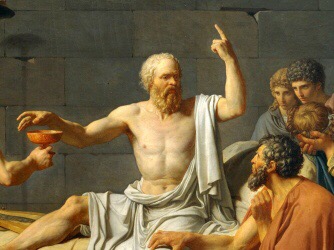

“Strong minds discuss ideas, average minds discuss events, weak minds discuss people.”
“If you don’t get what you want, you suffer; if you get what you don’t want, you suffer; even when you get exactly what you want, you still suffer because you can’t hold on to it forever. Your mind is your predicament. It wants to be free of change. Free of pain, free of the obligations of life and death. But change is law and no amount of pretending will alter that reality.”
“I am not an Athenian or a Greek, but a citizen of the world.”
“True wisdom comes to each of us when we realize how little we understand about life, ourselves, and the world around us”



























